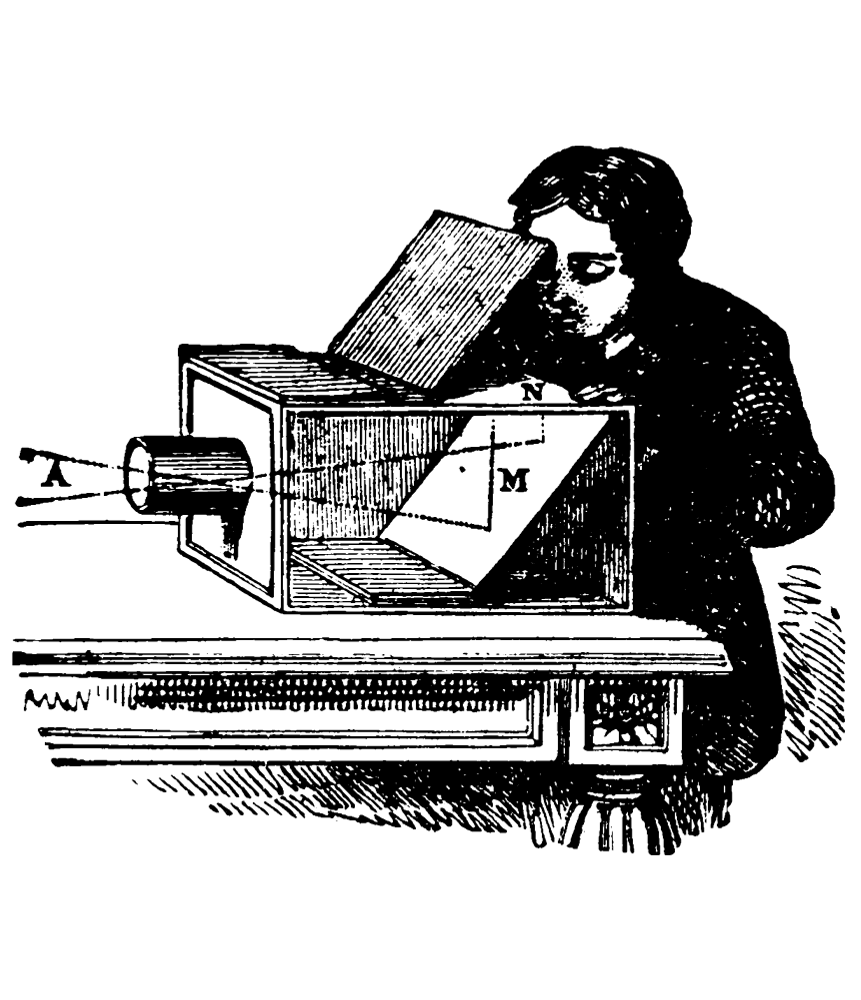About Obscura
The student journal Obscura is a periodical that has been published since 2014 under the patronage of the History Students’ Association of Faculty of Arts, as one of its long-standing projects. The journal focuses on publishing contributions related to historical topics and aims to serve as a platform for young academics to gain their first publishing experience. Obscura is managed by an editorial team consisting of students of history and related fields taught at the Faculty of Arts, Charles University.
Why "Obscura"?
Our journal was inspired by the ancient optical device known as the camera obscura. This device is used to project an image, which, however, is never entirely faithful to the object being captured, but is always smaller and inverted. The process of projection closely resembles historical research, since history (the image) is not identical to the past (the object being captured) – that is, to what actually happened. Nevertheless, the impossibility of perfectly capturing the past should not lead us to give up on understanding it, but should instead guide us toward humility (the recognition of our mistakes and preconceptions), which can contribute to a deeper understanding.

In this figurative sense, our journal represents a sort of camera obscura, capturing history at the university and focusing its lens specifically on what history means from the perspective of us, the students. What topics attract us? What would we like to discuss? What do we consider contemporary issues in history and historiography?
The core of the journal will always consist of articles by students, who will decide which objects the lens of Obscura will focus on. In addition to your contributions on historical topics, regularly appearing sections will be provided by the editorial team. Among the established sections is “tahouni historiografie,” where our external collaborators introduce us to classical works of history, “kunst,” which mostly focuses on engaged art, and “anketa,” featuring experts who explore a particular concept or tackle pressing issues. Since the fourth issue, we have also occasionally created space for the sections “interviews with Czech history students on Erasmus” and “events at the faculty,” where we delve deeper into the events that took place during the semester.